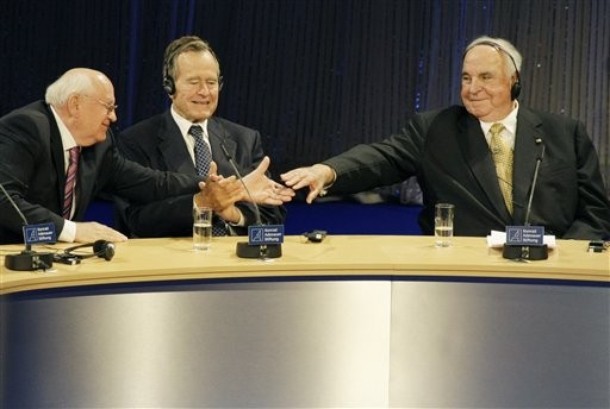A "Nutty" Foreign Policy

James Goldgeier has a nice recap of the course of American strategy following the collapse of the Soviet Union:
When the Berlin Wall fell, the American foreign policy establishment was suddenly adrift. There were brilliant and widely read analyses of the world produced in the early post-Cold War period such as Francis Fukuyama's End of History and Samuel Huntington's Clash of Civilizations, but those were assessments not strategies.The most developed strategy early on was articulated by Dick Cheney's Pentagon in the notorious 1992 Defense Planning Guidance, which was leaked to the New York Times. "Our first objective," an early draft read, "is to prevent the re-emergence of a new rival, either on the territory of the former Soviet Union or elsewhere, that poses a threat on the order of that posed formerly by the Soviet Union." What made the document controversial was that it argued that the United States needed to prevent not only its adversaries from gaining greater power in core regions, but also major allies such as Germany and Japan. The White House disavowed the Cheney document, and George H.W. Bush's national security adviser, Brent Scowcroft, later described the Pentagon's approach at the time as "nutty."
Looking at the years since that nutty proposal, it's pretty clear that either by conscious design or inertia, it remains America's de-facto strategic framework. The question for the Obama administration is whether it wants to change that (so far the signals are mixed) and if so, what will replace it? Goldgeier thinks of all the possible grand strategies briefly hinted at by the administration only one - nuclear disarmament - is the most fleshed out. It's also, to my mind, the least necessary.
(AP Photos)



